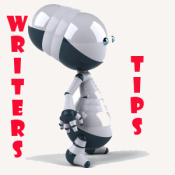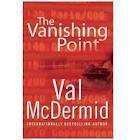Jacqui Murray's Blog, page 181
October 1, 2012
Writers Tip #104: Anne Rice Talks About New Writers and Self-Pub
 When you read your story, does it sound off, maybe you can’t quite put your finger on it, but you know you’ve done something wrong? Sometimes–maybe even lots of times–there are simple fixes. These writer’s tips will come at you once a week, giving you plenty of time to go through your story and make the adjustments.
When you read your story, does it sound off, maybe you can’t quite put your finger on it, but you know you’ve done something wrong? Sometimes–maybe even lots of times–there are simple fixes. These writer’s tips will come at you once a week, giving you plenty of time to go through your story and make the adjustments.
Today’s tip: Self-pub may be your best option. So says Anne Rice.
Thanks to my efriend Morgan, I found this great video from Anne Rice discussing writing and self-pub. See what you think:

To have these tips delivered to your email, click here.

Jacqui Murray is the editor of a K-6 technology curriculum, K-8 keyboard curriculum, creator of two technology training books for middle school and six ebooks on technology in education. She is the author of Building a Midshipman , the story of her daughter’s journey from high school to United States Naval Academy. She is webmaster for six blogs, an Amazon Vine Voice book reviewer, a columnist for Examiner.com , Editorial Review Board member for Journal for Computing Teachers, Cisco guest blog, Technology in Education featured blogger, IMS tech expert, and a bi-weekly contributor to Write Anything. Currently, she’s editing a thriller that should be out to publishers next summer. Contact Jacqui at her writing office or her tech lab, Ask a Tech Teacher.
Filed under: publishing, writing Tagged: indie, publishing, self-pub, writing

September 28, 2012
Book Review: Vanishing Point
by Val McDermid
The short review for International Best-selling author Val McDermid’s latest book, Vanishing Point (Atlantic Monthly Press 2012), is: Buy It. From the first line (Stephanie Harker was just about old enough to remember when air travel had been exciting–don’t you love that memory?), from the first scene with Harker’s wrenching love for her son Jimmy, that wash of excitement mixed with trepidation that surrounds their trip to the US and her presciently uneasy feeling that if they can just get to the beach, everything will be OK.
And then the roof falls in. Jimmy is kidnapped. Stephanie is tasered and arrested. The critical first hours of a kidnapping drizzle away in misdirection and the combined efforts of the FBI, the police, and Jimmy’s harried mom fail to unravel the Gordion Knot of who-dunnit. The gut-wrenching hope melts into anguish as the FBI’s best lead becomes a fiasco and Stephanie must return to England alone and start the search over.
What reader can’t relate to a mother’s empty feelings, her life half gone. Luckily, Stephanie has a partner in her police boyfriend who has a knack for solving mysteries. And here, half way into the book, when the reader thought they’d seen the major action–here is where the action starts.
There are a few extras to this story you’ll like. Stephanie is a ghost writer and spends considerable time sharing that experience with us. I was fascinated. Who knew those unsung heroes were in such demand? She shares so many credible details, I feel like I should hang out my shingle because I know what to do. Another extra is the cockney verbiage that surrounds the secondary main character, Scarlet. Despite her rough language and unpolished exterior, I couldn’t help but like the wench, even though I knew she cut her career teeth by lying to people. Try as I might, I found myself trusting her.
McDermid’s approach to the first half of the story is a long-winded flashback. She mixes present time as the FBI tries to track down Jimmy with past tense which is the story of how Jimmy came to live with Stephanie (she’s not his mother or his relative). Invariably, they run out of leads and return to Stephanie for more information. That backstory becomes a plotline of its own, covering about seven years. It’s a lot of narrative. Yes, there is dialogue, but much more narrative than is usually found in an action/thriller. I didn’t think I’d like that (the flashback or the extended narrative), but I got used to it, thanks in large part to McDermid’s facility with weaving the stories together.
I won’t spoil the ending, but I’ll warn you: When you think you’ve figured out how it’ll wrap up, you haven’t.
I liked this book so much that as I turned the last page, I jumped on Amazon and bought McDermid’s next book.

Jacqui Murray is the editor of a K-6 technology curriculum, K-8 keyboard curriculum, creator of two technology training books for middle school and six ebooks on technology in education. She is the author of Building a Midshipman , the story of her daughter’s journey from high school to United States Naval Academy. She is webmaster for six blogs, an Amazon Vine Voice book reviewer, a columnist for Examiner.com , Editorial Review Board member for Journal for Computing Teachers, Cisco guest blog, Technology in Education featured blogger, IMS tech expert, and a bi-weekly contributor to Write Anything. Currently, she’s editing a thriller that should be out to publishers next summer. Contact Jacqui at her writing office or her tech lab, Ask a Tech Teacher.
Filed under: book reviews, thrillers Tagged: book reviews, thrillers

September 26, 2012
If You’re a Writer, Self-Pub May Save Your Life

What do you do when ‘dream’ and ‘reality’ are oxymorons?
I published this a while ago, but it’s worth repeating. Writing is a solitary profession. We know that going in. If we wanted support, we’d buy a bra. What we want is camaraderie, to get our message out. Here’s my reaction to one efriend’s experience:
An efriend of mine had a very public self-described ‘meltdown’ over her lack of progress in finding a publisher. Her words were heart-rending because they reflected the fears of every low- and mid-list writer I know. We all worry that we won’t
find an agent or our agent won’t find a publisher, that the words we struggled over into the wee hours of the night will not resonate with the gatekeepers. You never forget your first kiss or your last rejection letter.
But I have a different conclusion than my friend. If we as writers can dial down the frustration for the next five years, our day will arrive. Publishing is changing. Where agents historically hold our future in their hands, now they have become just one option. For some, trading print and digital control of their work for the right to claim representation may be worth it. To have a professional review your words, format and edit them, and bestow their imprimatur is akin to being the front runner in a marathon. Yes, we as authors can self-publish, but that voice inside always asks, “If it’s good enough, why doesn’t an agent take it?”
Here’s why and it has nothing to do with the quality of your work:
These days, agents and publishers are as stretched economically as every other American business. As a result, they focus on the rainmakers. I’ve had more than one shake his/her head at me and say they want the blockbuster. Wouldn’t we all love to write a million dollar book the first time? Statistically, few of us will. It’ll take 3-5 books under our writer’s pen for that Big One to hit. It used to be, the agent signed you to be there when the big money day came. Now, they want that day to be today.
Your goals as a writer are different from the agents. They want the Big Story. You’ll take it, but you write to make a living doing what you love. You don’t need to get rich at it; you just need to get by.
The inevitable end to these different goals is writers get discouraged and give up when they aren’t an overnight success. Don’t let that happen. Here’s something that will cheer you up: There is a huge appetite among readers for all kinds of books, from NYT best sellers to niche volumes. Lots of books being turned down by agents are finding audiences in the digital world. Let me explain that. Think of your job. Say you’re a salesperson. Sure, you’d love to be the guy with the six-figure commission or #1 in your company, but the truth is, the business engine is fueled by mid-level employees with a spouse, a modest house, 2.5 kids, lots of mortgage and twice as much hope that they’ll do their job well enough to earn the next big promotion.
Writing for most of us is a hobby, a second job at best. We enjoy doing it. It’s our passion, our ace in the hole, our lottery ticket. We’d love to make thousands a month, but would be happy with hundreds.
That’s the disconnect: Publishers and agents AREN’T happy with the people I’ve just characterized and they don’t get that midlist is fine for readers. They think the only market is for blockbusters.
Therein lies our opportunity. Self-publishing opens the door to getting our work into the hands of a niche audience thirsting for it, growing a community of efriends with similar interests, holding onto the dream that some day we can be famous, and having fun in the process. For most of us, that’s good enough.
Not to say it’s an easy road:
you have to get ISBNs, barcodes, stuff to sell the books
you have to find an editor, maybe a formatter and a printer
you have to find distribution channels
you have to find your audience
you have to be so much more than a simple, pure writer
The truth is: If an agent picks you up, they will insist you do most of the marketing–the blog, tweets, FB, G –until you are the Bigtime Writer. That’s OK. Developing that community turns out to be fun. I know few writers in the physical world (outside of my writer’s group). I know hundreds in my virtual world. I love it.
I leave you with a thought. Once the muse has smiled on you, she owns you. You might stop writing for a few weeks, maybe even a few months, but soon, the keys will be back under your fingers and you’ll peck out a few thoughts, a few chapters, find a better way to wordsmith those scenes. If you’re a writer, you CAN’T quit. Agents and publisher miss the big point of why writers want to be published. It’s not to ‘hit it big’ although we’ll take that. It’s often to make a living doing what we love. We don’t need to get rich at it; we just need to get by, doing what we love.
So, go ahead and self-publish and thank your god that you live in this era when self-pub is an option.
Jacqui Murray is the editor of a technology curriculum for K-fifth grade and creator of two technology training books for middle school. She is the author of Building a Midshipman, the story of her daughter’s journey from high school to United States Naval Academy midshipman. She is webmaster for five blogs, an Amazon Vine Voice book reviewer, a columnist for Examiner.com, Editorial Review Board member for Journal for Computing Teachers, IMS tech expert, and a weekly contributor to Write Anything. Currently, she’s seeking representation for a techno-thriller that she just finished. Any ideas? Contact Jacqui at her writing office or her tech lab, Ask a Tech Teacher.
Filed under: business, writers, writing Tagged: agents, self-publishing, writers life, writing

September 25, 2012
Tech Tips for Writers #76: Laptop Frozen? Here’s What You Do

Tech challenged? Read on
Tech Tips for Writers is an (almost) weekly post on overcoming Tech Dread. I’ll cover issues that friends, both real-time and virtual, have shared. Feel free to post a comment about a question you have. I’ll cover it in a future Tip.
Q: My laptop is frozen. I can’t even turn it off. What do I do?
A: To fix a recalcitrant laptop, remove the battery, wait ten seconds and put it back and start up again. Half the time, that’ll fix it.
Questions you want answered? Email me at askatechteacher@structuredlearning.net and I’ll answer it within the next thirty days.

Jacqui Murray is the editor of a K-6 technology curriculum, K-8 keyboard curriculum, creator of two technology training books for middle school and six ebooks on technology in education. She is the author of Building a Midshipman , the story of her daughter’s journey from high school to United States Naval Academy. She is webmaster for six blogs, an Amazon Vine Voice book reviewer, a columnist for Examiner.com , Editorial Review Board member for Journal for Computing Teachers, Cisco guest blog, Technology in Education featured blogger, IMS tech expert, and a bi-weekly contributor to Write Anything. Currently, she’s editing a thriller that should be out to publishers next summer. Contact Jacqui at her writing office or her tech lab, Ask a Tech Teacher.
Filed under: tech tips for writers Tagged: tech tips, tips, writers

September 24, 2012
Writer’s Tip #21: Dialogue vs. Narrative
 When you read your story, does it sound off, maybe you can’t quite put your finger on it, but you know you’ve done something wrong? Sometimes–maybe even lots of times–there are simple fixes. These writer’s tips will come at you once a week, giving you plenty of time to go through your story and make the adjustments.
When you read your story, does it sound off, maybe you can’t quite put your finger on it, but you know you’ve done something wrong? Sometimes–maybe even lots of times–there are simple fixes. These writer’s tips will come at you once a week, giving you plenty of time to go through your story and make the adjustments.
Today’s tip: Balance how much dialogue and narrative you put in your book
Dialogue speeds the action up. Narration slows action down. Some experts (i.e., the acclaimed New York literary agent Evan Marshall) say you should have a ‘reaction’ scene (which tends to be narrative, introspective, interior monologue) after every ‘action’ scene (which tends to include a lot of dialogue). It forces you to explain the implications of what just happened in the plot and thus, make sure the reader understands.
I have to admit, it’s a struggle for me to do what I’ve just said. I often find when I edit that I’ve put into narrative what should have been in dialogue, and vice versa. What do you think? And how do you make sure you avoid those pitfalls?
Click here for more on dialogue vs. narrative.
To have these tips delivered to your email, click here.

Jacqui Murray is the editor of a K-6 technology curriculum, K-8 keyboard curriculum, creator of two technology training books for middle school and six ebooks on technology in education. She is the author of Building a Midshipman , the story of her daughter’s journey from high school to United States Naval Academy. She is webmaster for six blogs, an Amazon Vine Voice book reviewer, a columnist for Examiner.com , Editorial Review Board member for Journal for Computing Teachers, Cisco guest blog, Technology in Education featured blogger, IMS tech expert, and a bi-weekly contributor to Write Anything. Currently, she’s editing a thriller that should be out to publishers next summer. Contact Jacqui at her writing office or her tech lab, Ask a Tech Teacher.
Filed under: characters, dialogue, writers resources, writers tips Tagged: characters, dialogue, narrative, writers resources, writers tips

September 21, 2012
Book Review: Not Dead Yet
by Peter James
My rating: 5 of 5 stars
I’ve read and enjoyed Peter James series about Detective Superintendent Roy Grace and his crime fighting efforts. They always include a very British approach to life, love, and fighting the bad guys, as well as lots of insider details on police procedure, British style. The latest by this international best-selling author, Not Dead Yet (Minotaur Books 2012), is his best. It is the story of a sexy singer-turned-Hollywood star with the lofty name ‘Gaia’ who comes to Britain to shoot a movie despite death threats that end in the murder of her assistant just before leaving the US. Because of the high profile nature of the star and the rapacious press interest, Roy Grace is assigned the unenviable task of keeping her safe during her time in Brighton. It doesn’t take long for threats to surface despite her multiple body guards and Grace’s focused security efforts (impinged sadly by police budget cuts) and he must unravel the stalker’s plot before real danger reaches the famous star.
He almost doesn’t make it.
Thriller lovers will know they’ve picked the right book from the first line–“Gaia Lafayette was unaware of the man out in the dark, in the station wagon, who had come to kill her.” As it turns out, he’s only one of several who want to see Gaia dead. Keeping the beautiful star safe turns out much more difficult than it at first appeared to Grace, knowing she has her own security staff well-aware of the threats to her life.
By page 7, I couldn’t stop reading, in no small part because of the many details James includes on the human side of Grace and the events that control his life outside of policing. In some books, this would slow the pace down. For James, it’s becomes his voice and what we readers have come to expect from his novels. Many chapters open with some introspective insight into a life event (his girlfriend is pregnant, the difficulties on of his detectives had with self-serve bagging in the grocery, a budding romance which seems to die before it reaches puberty). I counted up to three pages on some tangential event, which were then looped nicely back to the main plot. There’s also a subplot which runs through the series on Grace’s missing wife who, after ten years, Grace is trying to get declared dead so he can marry his current fiancee. It starts where it left off in the last book (which closes just two weeks before this one opens) and is sprinkled throughout this book’s 400 pages.
There are also some good lines like this one:
“Sometimes his brain felt like a junk room where the light bulb had blown and no one had replaced it. You had to root around with a torch for stuff you wanted, and each year as he got older the torch got smaller and the batteries dimmer.”
Lovely, isn’t it?
Jacqui Murray is the editor of a K-6 technology curriculum, K-8 keyboard curriculum, creator of two technology training books for middle school and six ebooks on technology in education. She is the author of Building a Midshipman , the story of her daughter’s journey from high school to United States Naval Academy. She is webmaster for six blogs, an Amazon Vine Voice book reviewer, a columnist for Examiner.com , Editorial Review Board member for Journal for Computing Teachers, Cisco guest blog, Technology in Education featured blogger, IMS tech expert, and a bi-weekly contributor to Write Anything. Currently, she’s editing a thriller that should be out to publishers next summer. Contact Jacqui at her writing office or her tech lab, Ask a Tech Teacher.
Filed under: book reviews, thrillers, Uncategorized Tagged: book review

September 19, 2012
4 Great Reasons to Build Your Writer’s Platform Yourself

Build your platform the best way you know how and be OK with that
Let’s start by clarifying who I’m talking to today. If you write to create a memory for your family or to get something off your chest–those are valid reasons, no problem with them. You’re just not an audience for this article. But if you write because you want to be heard, or you need a bit of extra money and writing sounds like the way, or you want to be remembered for something other than being little Joey’s mom (or dad), read on.
If your writing requires an audience, that means you need a platform. What is a ‘platform’? According to Nathan Bransford, literary-agent-turned-author, “platform is the number of eyeballs you can summon as you promote your book. That is who follows your blog, who friends you on FB, who’s in your G+ circles, who invites you into their Twitter streams, who participates in your PLNs. It can also include book signings, radio and TV appearances, seminar participation, guest articles, newsletters, and any sort of guest appearances. To create and grow your platform, you’ll want to:
define yourself as the unique writer you are.
focus on that image without diluting it.
reach out to as many people as you can
Does that sound simple? Yes, of course it does. All I’m asking is that you know yourself, be true to yourself, and don’t be afraid to share it.
You say it just isn’t that easy? You’re right. The ‘knowing’ is the easy part. The ‘doing’ is what’s hard, and it takes a lot of time. Which is why there are hundreds–thousands?–of publicists out there that will do this for you. They’ll profile you, box you up, sound bite your personality and writing expertise, and then spread the word.
That’s OK, but it’s not for me. The reason isn’t because I have so much free time or I have writer’s block and am looking for a diversion. It’s because my platform is the lifeblood of my writers credentials and no one will do it as well as I do. Consider these reasons and see if you agree:
If you hire a publicist and they do it poorly, as a friend of mine said, “You would have gotten more promotional value out of her/his fee by setting fire to your cash on YouTube”.
You, on the other hand, will never quit until you do it well.
If you write and no one reads it, have you even written? Think of the platform as the WD40 to your rusty hinge.
No one else will do it for free
Yes, I understand, marketing and publicity is about as appealing to a writer as banana flavored Popsicles, but agents and customers will judge you based on the strength of your platform, which means your future as a professional writer (remember: that’s the group I’m talking to here) depends upon that. Don’t make that decision based on what you like or don’t like or what you’re comfortable doing. Embrace the courage of complete ignorance. Man up. Just do it. Let me know how it goes.
Jacqui Murray is the editor of a K-6 technology curriculum, K-8 keyboard curriculum, creator of two technology training books for middle school and six ebooks on technology in education. She is the author of Building a Midshipman , the story of her daughter’s journey from high school to United States Naval Academy. She is webmaster for six blogs, an Amazon Vine Voice book reviewer, a columnist for Examiner.com , Editorial Review Board member for Journal for Computing Teachers, Cisco guest blog, Technology in Education featured blogger, IMS tech expert, and a bi-weekly contributor to Write Anything. Currently, she’s editing a thriller that should be out to publishers next summer. Contact Jacqui at her writing office or her tech lab, Ask a Tech Teacher.
Filed under: marketing, writing Tagged: platform, writing

September 18, 2012
Tech Tip for Writers #75: What’s My IP Address

Tech challenged? Read on
Tech Tips for Writers is an (almost) weekly post on overcoming Tech Dread. I’ll cover issues that friends, both real-time and virtual, have shared. Feel free to post a comment about a question you have. I’ll cover it in a future Tip.
Q:I need my computer’s IP address, but I don’t know where to find it. Help!
A: Go to: My IP Address.com . I keep mine on my iGoogle homepage so it’s right there.
Questions you want answered? Email me at askatechteacher@structuredlearning.net and I’ll answer it within the next thirty days.
To sign up for Tech Tips delivered to your email, click here.
Jacqui Murray is the editor of a K-6 technology curriculum, K-8 keyboard curriculum, creator of two technology training books for middle school and six ebooks on technology in education. She is the author of Building a Midshipman , the story of her daughter’s journey from high school to United States Naval Academy. She is webmaster for six blogs, an Amazon Vine Voice book reviewer, a columnist for Examiner.com , Editorial Review Board member for Journal for Computing Teachers, Cisco guest blog, Technology in Education featured blogger, IMS tech expert, and a bi-weekly contributor to Write Anything. Currently, she’s editing a thriller that should be out to publishers next summer. Contact Jacqui at her writing office or her tech lab, Ask a Tech Teacher.
Filed under: tech tips for writers Tagged: IP, writers tips, writing

September 17, 2012
Writer’s Tip #104: A Bunch of Tips from Jeff Goins (Who’s He?)

Want to write? Read these first
When you read your story, does it sound off, maybe you can’t quite put your finger on it, but you know you’ve done something wrong? Sometimes–maybe even lots of times–there are simple fixes. These writer’s tips will come at you once a week, giving you plenty of time to go through your story and make the adjustments.
Today: Tips from Jeff Goins
Who is Jeff Goins, Truth, I’d never heard of him before, but Seth Godin recommended one of his books so I popped over to his blog to check out who this guy is. He’s a writer, blogger, and speaker. Based on these tips, I think he’s pretty astute:
So… you want to be a writer?
Anyone who writes is a writer, but that doesn’t mean they’re a very good one. So let’s talk about how to become a better writer. We’ll begin with the basics — here are seven key lessons (with links to important articles about each):
Writing is simple, but not easy.
Before you get a larger audience, you have to get better.
Practice makes you better; it’s the repetitions that make it effortless.
Until you put your work out there, you’re only screwing around. Write for real.
You can’t practice without discipline. Keep showing up and persevering.
There will always be resistance; type through it, anyway.
Get over your excuses and do the work.
Before getting started
Before you begin writing, ask yourself these important questions:
Why do I want to write?
Who am I writing for?
What’s my message?
Have I found my voice yet?
What am I willing to sacrifice for my craft?
What won’t I give up?
Tips for when you begin
Here is a list of 10 essential tips on writing:
Write every day.
Make sure your writing is effective.
Don’t be lazy; do your best to avoid sounding stupid.
Stay focused! Distraction is the enemy of all great art.
Stop worrying about being a good writer; just write.
Forget about fame; write what’s worth writing.
Get over your perfectionist tendencies.
Don’t write to get published.
Write with conviction.
Read.
Build your platform
Although writers need to write first for the craft, it’s not a bad thing to want to get published. But that’s a byproduct, not a goal (For the real writer, anyway).
Look. This isn’t just something that happens accidentally. You have to work at it. So how do you create work that earns you the attention of publishers, exactly? You build a platform.
These days, a lot of writers use blogs and the power of the Internet to get their writing discovered. There’s no reason you can’t do the same. Here are 10 basic tips on blogging and building an audience that will help you get published:
In order to get noticed, you’ve got to be intentional.
Narrow your focus to broaden your audience.
Learn from copywriters, and write for scanners.
Engage with readers (get more comments on your blog).
Be intentional about growing your blog traffic.
Build an email list (like, yesterday).
Use guest posting to tap into new audiences.
Write great content, but don’t stop there; build relationships, too.
Expect haters.
Help people.
To have these tips delivered to your email, click Writer’s Tips here.

Jacqui Murray is the editor of a K-6 technology curriculum, K-8 keyboard curriculum, creator of two technology training books for middle school and six ebooks on technology in education. She is the author of Building a Midshipman , the story of her daughter’s journey from high school to United States Naval Academy. She is webmaster for six blogs, an Amazon Vine Voice book reviewer, a columnist for Examiner.com , Editorial Review Board member for Journal for Computing Teachers, Cisco guest blog, Technology in Education featured blogger, IMS tech expert, and a bi-weekly contributor to Write Anything. Currently, she’s editing a thriller that should be out to publishers next summer. Contact Jacqui at her writing office or her tech lab, Ask a Tech Teacher.
Filed under: writers tips Tagged: jeff goins, writers tips

September 14, 2012
8 Free Online Marketing Tools for Writers

Photo credit: Vector Portol
Last week, I covered 6 FREE Online Tools for Indie Writers. Today, we’ll market your book. There’s a lot of internet information on this subject, so I’ll focus on FREE tools that will boost your sales. I like Free. When you’re a new writer, with no revenue stream, that’s important.
Blogs
This is a great invention for a writer. You get to introduce yourself to the reader, and s/he gets to experience your authorial skills first hand. Along the way, you market your book.
According to one blogger I’ve talked to, since she started this marketing tool, her books sales have tripled. this would come as no surprise to salespeople. They know that people like doing business with friends. Why? They know what to expect. They trust them. A blog makes you a friend of your reader, one they trust to provide good information because you’ve done it in the blog. Here’s mine that promotes K-8 technology books, and a how-to book on getting into the Naval Academy.
Where do you get a blog? The most popular are WordPress and Blogger. I prefer the former because it’s a cleaner, less cluttered presentation.
Google eBooks
Google eBooks (now called Google Play) is the search giant’s ebook answer to Amazon Kindle (see my article here). There is no charge for set-up. I sell all of my ebooks there. Unlike Amazon Advantage where you have to redo book offerings for various national markets around the world, Google Play requires only you bubble in the markets you wish your books sold in. They have a dashboard–clumsy compared to Amazon’s sleekness–that lets you track sales. I get checks for about 63% (Google takes 37% for administrative compared to Amazon’s 55%) of sales revenue which usually confuse me because they don’t seem to match any sales period. But–they are checks. I cash them.
YouTube Videos
Lots of writers are now creating video trailers of their books and uploading them to YouTube. The power of multimedia to sell your book is statistically unrivaled by any other outlet. Writers conferences I attend say even done badly, they’re better than anything else. Here’s one by Kaleb Nation. He discusses writing his fantasy novel. The mix of appealing keyboard sounds, unique music, understated-but-effect visuals has brought over 58,000 viewers to hear his thoughts–an unknown author with no name recognition–on writing a book.
He’s not the only one. When I searched YouTube for ‘book trailers’, I got over 8500 hits–mostly from names I had never heard of.
Pay Pal
PayPal isn’t a stand-alone marketing tool, rather an add-on. It is an e-commerce business which allows buyers to pay you using their checking, Mastercard, Visa, PayPal. PayPal is free to set up, though they take a .percent for their trouble. What I like (and there’s lots I don’t like about this giant of e-commerce–much of it rhymes with ‘customer service’) is that buyers need not have a PayPal account. They can use their credit card as a guest.
Let’s say you’ve set up a website to sell your book. You install a PayPal button (free from PayPal’s site) as your preferred method of payment. When customers purchase your book, PayPal transfers their money into your account, notifies you and allows you to print a packing slip to include in the shipment.
Twitter is as much about marketing your book as a support system for writing. Sure, you share the news that your book is available, where to buy it, but your Tweeple are interested because they’ve gotten to know your writing style. And they like it. they assume that the way you write with Twitter’s 140-character limit mirrors how you tell a story. Plus, if you’ve taken the time and effort to develop an efriendship with them, they’ll give your nascent writing efforts a try. I like Twitter so much, I wrote this article on 12 ways Twitter Makes You a Better Writer (and Person). How about this on on 16 Tips Picked Up From Twitter.
It’s worth noting that hard-sell doesn’t work on Twitter. Being a friend does. An overt sales pitch is more suited for your book’s website than this forum.
I can’t say definitively that FB sells books for me, but NOT having it would probably hurt my sales. It’s an online presence that is expected of all writers. It is one more arrow in your quiver of legitimacy. Once you have a FB address, you can repost articles to it, add a FB ‘like’ box to your blog (please ‘like’ me in the sidebar–I have so few! Unlike my tech blog where I have dozens. I wonder why that is… Anyone, back to my original thoughts) share information about your writerly efforts, join others with similar goals.
Stumble On/Digg/Pinterest and other
These bookmarking sites are a great way to promote your books. You set up an account with any/all of these. Every time you post a blog, be sure to add it to them. And, from your Scribd.com account, you can post your ebooks to a whole list of social network accounts. Don’t miss this method. It’s free and it works.
Book Competitions
There are hundreds of these. You can get lists from places like Poets and Writers, under their Grants and Awards tab. Some charge an entry fee. Others, like Amazon’s Breakthrough Novel Award, are free. If you’re hoping to find an agent, it makes a big difference to them if you’ve received an award from a reputable competition.
Jacqui Murray is the editor of a K-6 technology curriculum, K-8 keyboard curriculum, creator of two technology training books for middle school and six ebooks on technology in education. She is the author of Building a Midshipman , the story of her daughter’s journey from high school to United States Naval Academy. She is webmaster for six blogs, an Amazon Vine Voice book reviewer, a columnist for Examiner.com , Editorial Review Board member for Journal for Computing Teachers, Cisco guest blog, Technology in Education featured blogger, IMS tech expert, and a bi-weekly contributor to Write Anything. Currently, she’s editing a thriller that should be out to publishers next summer. Contact Jacqui at her writing office or her tech lab, Ask a Tech Teacher.
Filed under: authors, blogs, Book contests, marketing, writers, writers resources Tagged: blogs as marketing, book competitions, digg scribd, facebook, free internet resources for writers, google books, grants and awards, stumble on, twitter






